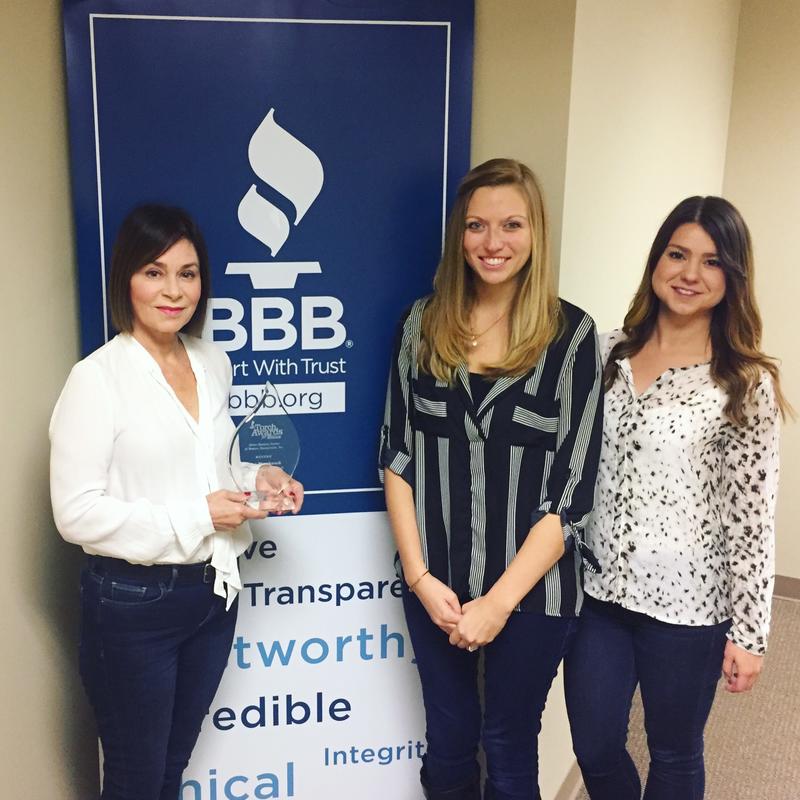In an industry known for recognizing innovative products and well-designed interiors, it’s refreshing to honor the way professionals are doing business. Designer Susan Muschweck knows the feeling. In 2017, her Pittsburgh-based firm, Susan Muschweck Interior Design, was presented the Torch Award for Ethics, given by the Better Business Bureau to recognize exceptional character and conduct in the marketplace.
Here, Muschweck shares with EAL what it means to design with integrity and provides ethical solutions to a few of today’s biggest designer dilemmas.

Congratulations on being named a 2017 Torch Award for Ethics recipient! What does this recognition mean to you?
It was a great honor, particularly since it was the second time we’ve received it. [The firm also earned the recognition in 2013.] When we take on a job, our mission is always to provide a guaranteed job. That means we vet all of our contractors, and if there’s any issue after the fact, we go in and make any repair or change. We work hard at doing what we do in addition to keeping things on the straight and narrow, so it was quite a bit of an honor.
I have assembled a wonderful battalion of freelance designers, assistants, CAD designers, contractors, and they all stand by and operate the same as I do. So when I win an award for being ethical, it trickles down to everyone that I hire, because I can’t put anyone on a job that I wouldn’t want in my own home.
How do you best gauge one’s ethics during the hiring process?
I find that there’s no register or list that you can totally count on for hiring. It’s good old-fashioned leg work and intuition. I typically try them out on a small job or a project in my home, which is always under some type of new-and-improved project whether I need it or not! That’s where I test colors, new cabinetry, sofas—you name it—because I want to make sure these things are livable and hold up.
When I initially interview a contractor, I tell them how I work. As I say to all my people: No corners are cut; pretend you’re spending your own money. I said to a young staffer, “When was the last time you saw or wrote a $100,000 check?” She just giggled, and I said, “That’s why you have to take this very seriously.” This is hard-earned money, and people trust us to provide what we say we can do.
What are your thoughts on ethics when it comes to the interior design industry?
Why, it’s kind of a moot point! It’s important, because if [someone is] going to be providing any service, regardless if it’s design or a physician or anyone else providing professional services, the bottom line is that you presume and hope that they are going to be ethical, fair, and guarantee their work in the cases that [they] can.
Share some advice on this designer dilemma: When faced with a difficult client, how does one gracefully and considerately cut ties with the project?
There are those [clients] in this world that you can’t make happy. I think in my whole career, I’ve encountered four clients like that. You want to leave jobs on a high note and feel great about the product, because basically, we make people live better and happier, and if you have to leave on a down note, that’s never good.
 This is hard-earned money, and people trust us to provide what we say we can do.
This is hard-earned money, and people trust us to provide what we say we can do.
I had to cut ties with a client a few years ago because she believed she could be doing the project better. She didn’t put much creed in the fact that I knew what I was doing. Those are the clients that you have to leave. You wrap up any loose ends that you had initiated, but you don’t continue on with the project.
One more common predicament: Another interior designer’s account shares your work on social media with attribution. Is that unethical?
I do have an opinion on it! I don’t care. That’s my opinion. If somebody puts my work out there, I’m grateful for it. I’m old enough to know when there wasn’t an internet, and because of how people operate now, people are going to steal your images. It’s going to be up to you to police that. It’s like I tell my teenage daughters: Don’t put anything out there that you hope people don’t see, because it’ll live in perpetuity. It’s just the nature of how we live in this century.
I recently saw someone posted a photo of mine, and all I did was “like” it and comment something along the lines of: “This was a wonderful bathroom to work on.” I may have a very skewed opinion, and as a former journalist and photographer, I take all this stuff seriously. But I think the internet—Facebook and Instagram and Pinterest—it’s up for grabs.




























